It doesn’t need to be said, but each country has a unique culture that you should respect. When you travel abroad, you have to be aware of the cultural differences. For me, whenever I travel abroad, I always learn the culture and taboos of the country where I’m going to travel in advance. I want people in the country to think that I’m a good tourist, and I want to avoid unnecessary troubles. In that way, I might have lucky chances from local people. Today I’m going to share the manners you should know in Japan. To be honest, you don’t have to worry about it too much. Can you imagine that if your guests behaved their own way at your home, how would you feel? You might not mind it but most people in Japan would think it’s uncomfortable, I’d say. It is said, “When in Rome, do as the Romans do.” It’s simple, isn’t it? Let’s get started.
・On the train
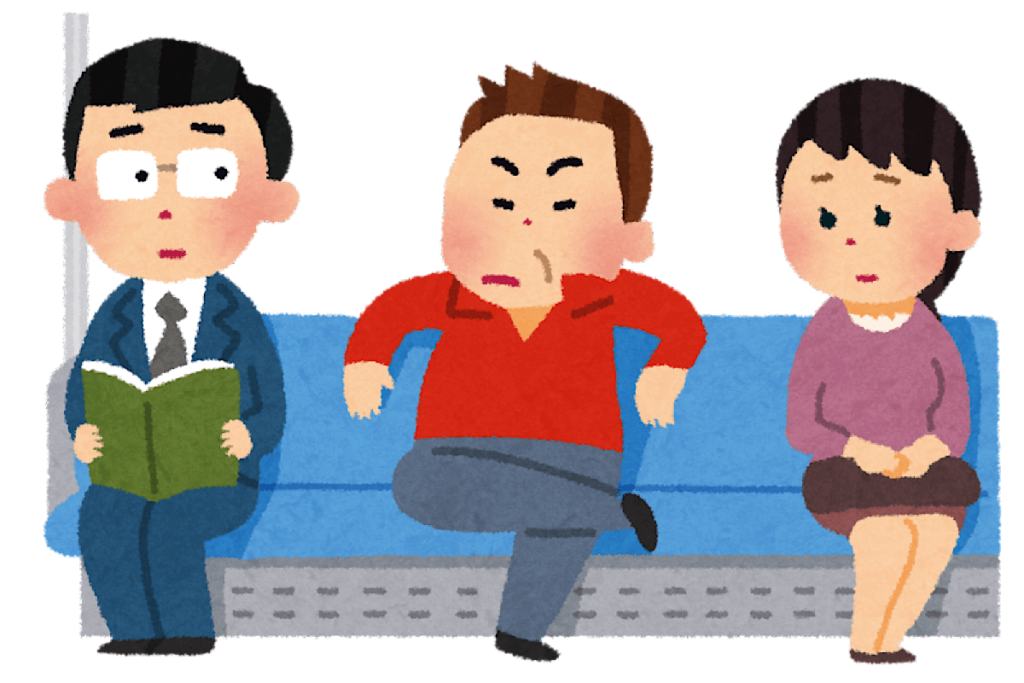
*Don’t sit with wide-apart or crossed legs
The seat of the train is supposed to be designed to be available for a certain number of people, usually eight passengers. If you sit with your legs spread apart, the seat might not be available for others. When it’s not during the busy hours, it doesn’t matter, but you should pay attention to it when it’s crowded.
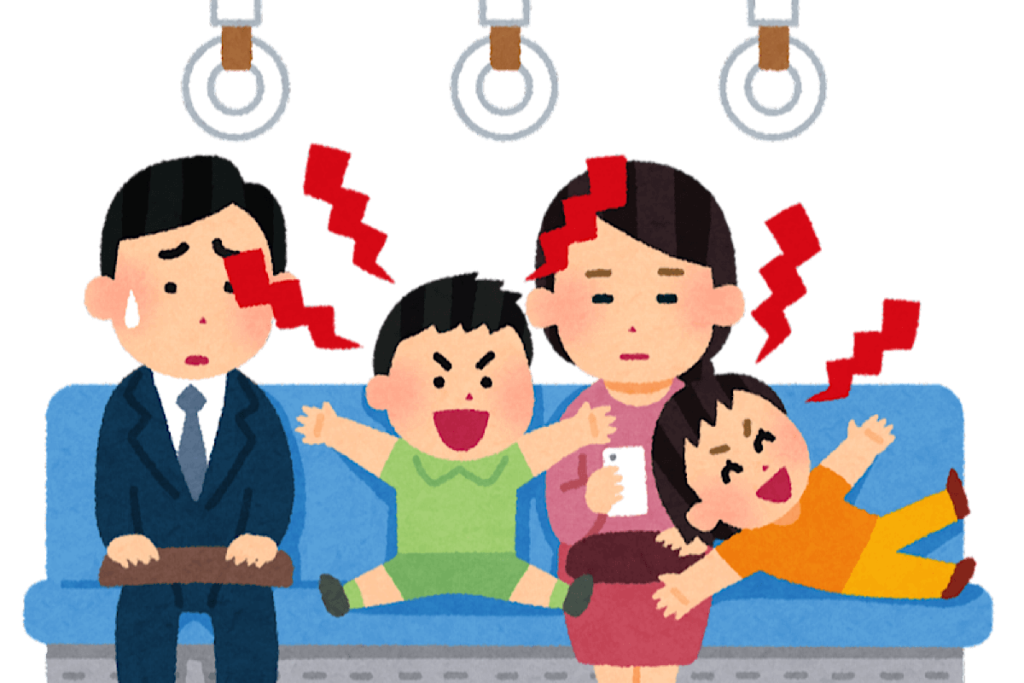
*Don’t make noise.
I used to live abroad for a couple years, and when I returned to Japan, I was shocked by how horribly quiet the train was! No one talks on the phone. My clients can understand that I can’t talk on the phone when I’m on board. In case it’s really urgent and important, I’ll just say, “I’m on the train right now, I’ll call back later.”
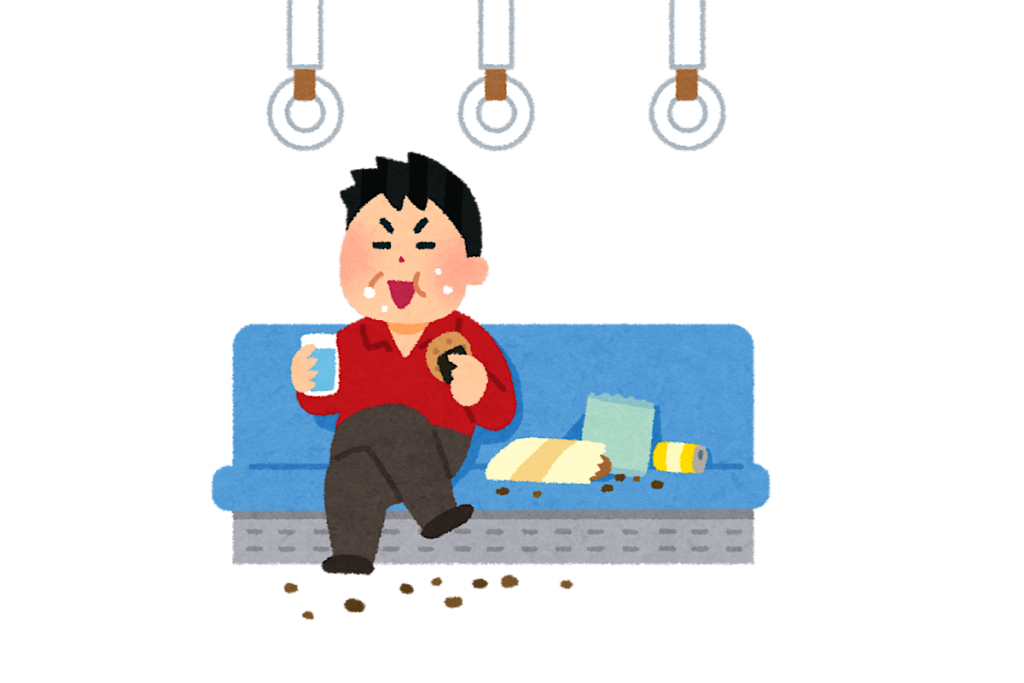
*Don’t eat and drink
Except for long distance trains and Shinkansen, you’re not allowed to eat and drink. Technically speaking, you can eat and drink on the train by the guidelines of railway companies. Oh, you might think it’s a hassle and a complicated rule. Here’s a tip in Japan: there’s a main rule in public. Japanese people are taught by their parents and teachers that you shouldn’t do things that make others feel uncomfortable. In this case, the smell of your food and drink that have strong smells like alcohol or hamburgers might cause others to be unhappy.
・On the street

*Don’t spread out and walk
As Japanese sideways are narrow, compared to abroad, I totally agree with that as you might get in the way of traffic. At busy place, like busy stations, areas with sakura blossoms, museum, and attractions, there might be one-way street.
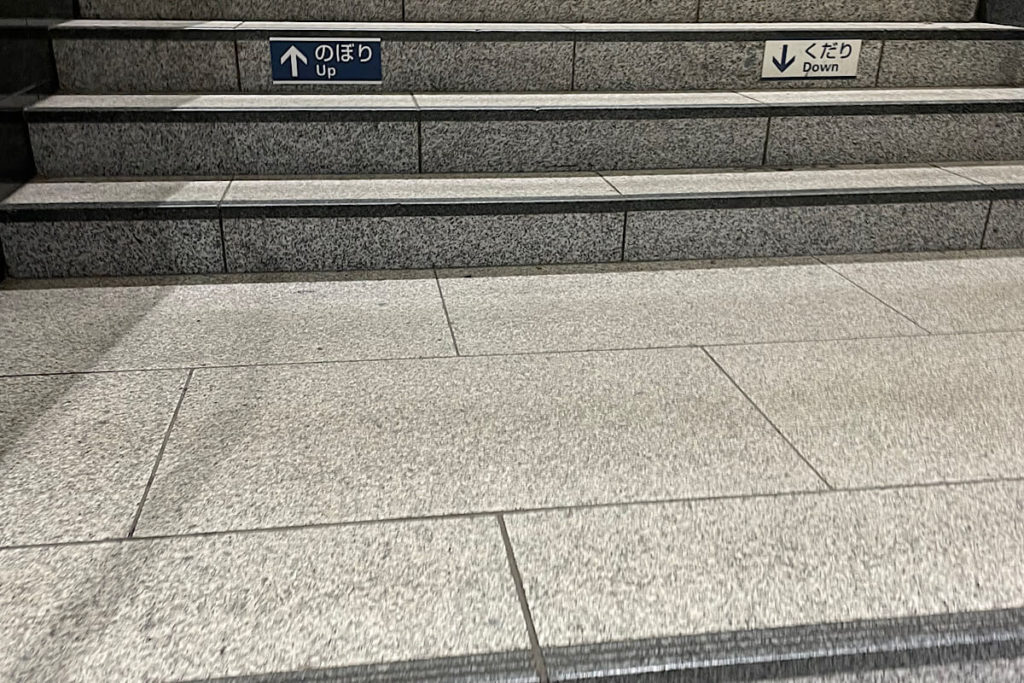
In the stairway to the subway, you might see this mark “↑のぼる(UP).” This means that people who are going up need to walk to the left and leave open the right space for people who want to go down.
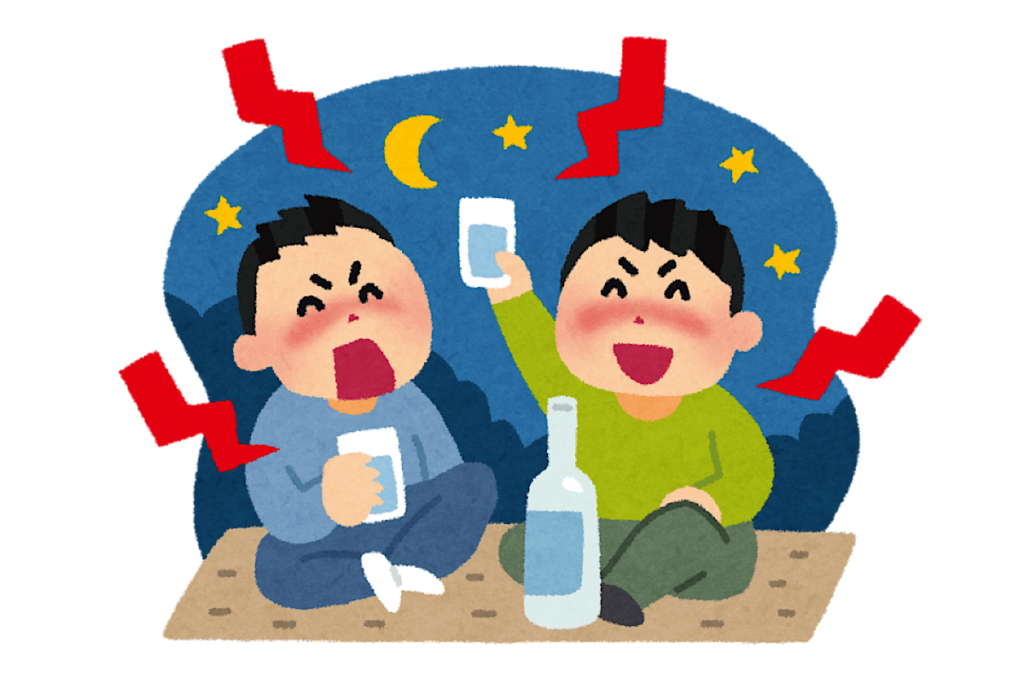
*Don’t eat and drink in public
Except for in front of food stalls, you shouldn’t eat and drink in public even though you can buy alcohol and snacks at convenience stores. Walking around while eating is considered rude behavior. You might see Japanese people do that, but there are such rude people everywhere in the world.

*Keep your rubbish
There are few rubbish bins in Japan to avoid terrorists who might place any dangerous substances in the rubbish bin. You need to bring your rubbish home. Don’t throw your rubbish in the street because messy places are more likely to become more dirty places. On the flip side, as long as you keep the place clean, others feel guilty when they mess the place up. Of course, you can throw it away in case there is a bin for the guest. One more thing, you need to sort your rubbish when you throw it away. There are burnable trash, plastics, pet bottles, and cans. You can check the rules where you visit.

*Don’t be a paparazzi
Generally speaking, Japanese people are nice and friendly, I’ll give you that. But it doesn’t mean you can take photos of them without their permission.

*Keep public toilets clean
I’m also glad to see how immaculate public toilets are in most places. So you should keep it to use. I was taught by our parents and teachers that you should try to treat others like you’d want to be treated.
How was that? Don’t get me wrong, most people you’ll meet in Japan are really welcoming to you from the bottom of our hearts. Today, I introduced some don’ts in Japan. Actually, even Japanese people do the same things. Most people consider them indecent. Usually people will understand that you’re a foreigner and that you don’t know how to act along these lines. However, your experience in Japan would be more amazing if you know these tips, at least I hope so. Thank you for taking time to read my article to the end. Enjoy your trip!
I worked at a trading company for many years. I live in Tokyo with my wife. Love skiing, traveling, IPAs, wine , X-treme sports, fashion, and learning English and Chinese.


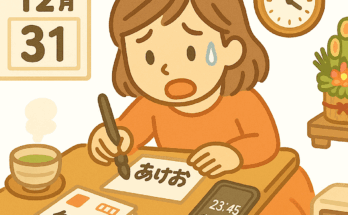
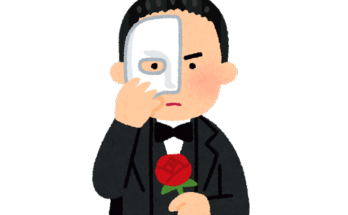
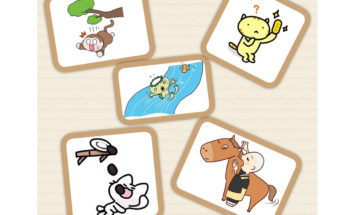
 HTJ has a YouTube page! Check it out
HTJ has a YouTube page! Check it out